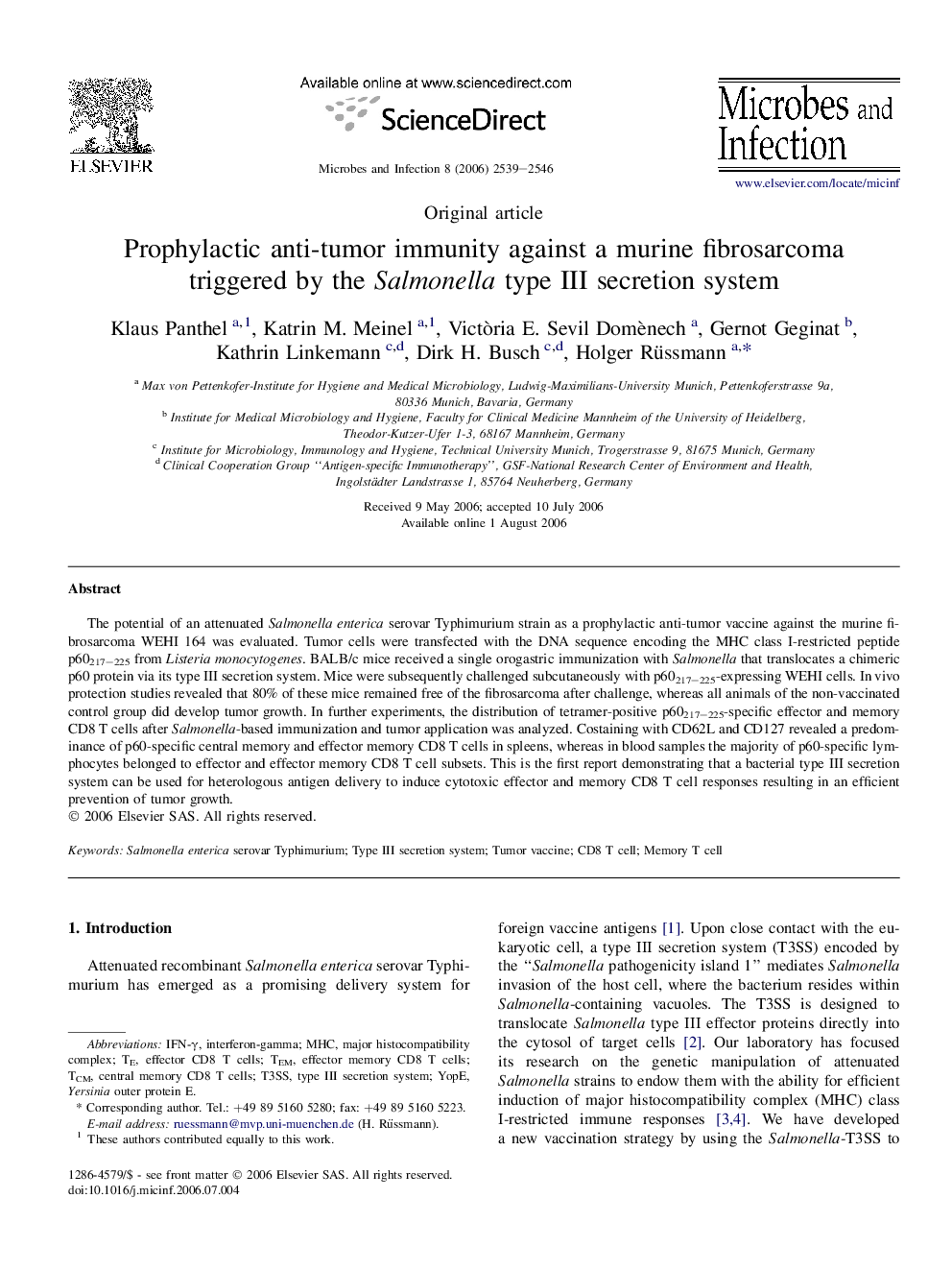| Article ID | Journal | Published Year | Pages | File Type |
|---|---|---|---|---|
| 3415831 | Microbes and Infection | 2006 | 8 Pages |
The potential of an attenuated Salmonella enterica serovar Typhimurium strain as a prophylactic anti-tumor vaccine against the murine fibrosarcoma WEHI 164 was evaluated. Tumor cells were transfected with the DNA sequence encoding the MHC class I-restricted peptide p60217–225 from Listeria monocytogenes. BALB/c mice received a single orogastric immunization with Salmonella that translocates a chimeric p60 protein via its type III secretion system. Mice were subsequently challenged subcutaneously with p60217–225-expressing WEHI cells. In vivo protection studies revealed that 80% of these mice remained free of the fibrosarcoma after challenge, whereas all animals of the non-vaccinated control group did develop tumor growth. In further experiments, the distribution of tetramer-positive p60217–225-specific effector and memory CD8 T cells after Salmonella-based immunization and tumor application was analyzed. Costaining with CD62L and CD127 revealed a predominance of p60-specific central memory and effector memory CD8 T cells in spleens, whereas in blood samples the majority of p60-specific lymphocytes belonged to effector and effector memory CD8 T cell subsets. This is the first report demonstrating that a bacterial type III secretion system can be used for heterologous antigen delivery to induce cytotoxic effector and memory CD8 T cell responses resulting in an efficient prevention of tumor growth.
